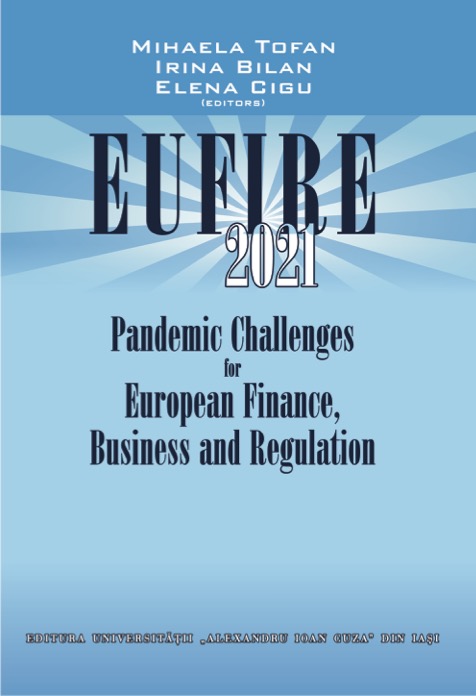A COMPLETED EURO ZONE–
A DREAM OR A FUTURE REALITY?
A COMPLETED EURO ZONE–
A DREAM OR A FUTURE REALITY?
Author(s): Ioana Buhac
Subject(s): Politics / Political Sciences, Politics, Economy, Economic policy
Published by: Editura Universităţii »Alexandru Ioan Cuza« din Iaşi
Keywords: Euro; convergence criteria; monetary integration; Maastricht;
Summary/Abstract: The Eurozone was conceived by the founders as the center of the European integration process, bringing many economic benefits to trade, eliminating currency risk, transaction costs, and avoiding shocks in financial markets. But with these benefits, there are risks, often underestimated, but highlighted only after the financial crisis. A decision on accession must therefore be carefully examined.Inadequate mechanisms and policies are closely linked to the Eurozone crisis. The desire for the Euro to be a force with relentless action for real convergence has proved too optimistic. Weak domestic institutions, insufficient productivity growth, and structural rigidities are some of the reasons why less developed countries cannot have real sustainable convergence provided by the Eurozone.During the crisis, structural and institutional weaknesses of some EMU countries, including Greece, Spain and Portugal, were highlighted. The same states that in the post- crisis period registered high rates of economic growth, but which paradoxically with the onset of the crisis faced significant falls in real GDP / capita. Thus, the competitiveness gaps between Member States illustrated relevant imbalances in the Eurozone.The need for real sustainable convergence, based on solid and non-cyclical foundations, is one of the most significant issues to be considered by every state wishing to be part of the Eurozone.The report of the 5 presidents talks about "a sequence of short-term and longer-term steps" that will help the political union. In the short term, the main priority is to regain confidence in the European project so that citizens can believe in solving the problems related to migration, the Schengen area, cybersecurity, the de-escalation of relations with Turkey, Syria, Ukraine, and the Transatlantic Partnership Trade and Investment. In the longer term, the crisis has underlined the fact that EMU cannot resist without deeper integration. The European project needs much better political coordination and policies. Restoring confidence and renewing solidarity for the continuity of the European Project are preconditions that require special attention from politicians in the event of another crisis. After all these challenges there is one more question: the countries outside the Eurozone are ready to make the zone complete?
- Page Range: 12-20
- Page Count: 9
- Publication Year: 2021
- Language: English
- Content File-PDF

